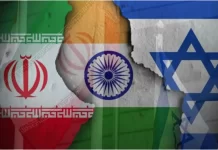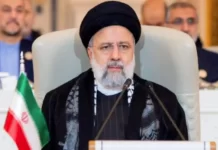
A Glimpse into the Controversial Case: Death Sentence for Retired Indian Navy Personnel in Qatar
In a shocking turn of events, a Qatar court has sentenced eight retired Indian Navy personnel to death for allegedly spying on behalf of Israel against Qatar. This controversial decision has not only raised eyebrows but has also created a diplomatic rift between India and Qatar, with India expressing its strong objections to the verdict. In this article, we will delve into the details of this perplexing case to shed light on the individuals at the heart of the matter and the circumstances surrounding their arrest and sentencing.
Who are the 8 Indians awarded death penalty in Qatar?
The eight retired Indian Navy personnel in question are:
- Captain Navtej Singh Gill
- Captain Saurabh Vashisht
- Commander Purenendu Tiwari
- Captain Birendra Kumar Verma
- Commander Sugunakar Pakala
- Commander Sanjeev Gupta
- Commander Amit Nagpal
- Sailor Ragesh
These individuals were not serving in the Indian Navy at the time of their arrest but had retired from their respective positions. Their involvement in this espionage case has sent shockwaves through diplomatic circles.
The Work Environment
Reports suggest that these eight individuals were employed by Dahra Global Technologies and Consulting Services, a private company based in Qatar. This company specializes in providing training and various services to the defense and security agencies of Qatar. It is within this framework that the allegations of espionage have emerged.
The Arrest and Charges
The saga began in August of the previous year when Qatari authorities arrested the eight former Indian Navy officers on charges of spying for Israel. This development took place amidst secrecy and raised questions regarding the nature of their alleged activities and the evidence presented against them.
India’s Reaction
India has reacted strongly to this situation. The External Affairs Ministry released a statement expressing its shock and concern over the death penalty verdict. The statement highlights India’s commitment to the case, its ongoing consular support for the accused, and its intention to explore all legal avenues to contest the verdict.
Seeking Diplomatic Intervention
The gravity of the situation has prompted prominent figures in India to seek diplomatic intervention. Veteran leader Kapil Sibal, a prominent lawyer and former Congress leader, urged Prime Minister Narendra Modi to intervene in the matter. He emphasized that the charges against the accused had not been publicly disclosed by Qatari authorities and called for the government to explore all options for the release of the eight Indian ex-Navy officers.
The case is complex and shrouded in secrecy, which has made it difficult to discern the exact details of the allegations and the evidence presented in the court. As a result, it is crucial for the Indian government to pursue all available channels to protect the rights and interests of its citizens.
In conclusion, the sentencing of eight retired Indian Navy personnel to death in Qatar for alleged espionage has raised significant concerns and triggered diplomatic efforts to secure their release. This case underscores the importance of diplomatic relations and the protection of the rights of Indian citizens abroad.
Diplomatic Efforts
The case has spurred diplomatic efforts from the Indian government to secure the release of the eight ex-Navy officers. This includes providing consular access to the accused since the time of their imprisonment and maintaining close contact with their family members and legal team.
The Indian government has reiterated its commitment to the case, underscoring the high importance it attaches to this matter. It has pledged to extend all possible consular and legal assistance and to take up the verdict with Qatari authorities.
However, due to the confidential nature of the case, many aspects remain shrouded in secrecy, making it challenging for diplomatic efforts to proceed smoothly. The government has been cautious in making public comments about the specifics of the case, emphasizing that it would not be appropriate to comment further at this juncture.
International Implications
The sentencing of the eight former Indian Navy officers to death in Qatar is not only a matter of bilateral concern but also has international implications. It underscores the delicate nature of espionage cases and the complexities involved in handling them, especially when they involve individuals who have served in the military of another nation.
The case has brought to the forefront the need for transparency in legal proceedings, especially when the accused are foreign nationals. The lack of public disclosure of the charges has led to questions about the fairness of the trial and the evidence presented.
The Way Forward
As the Indian government continues its efforts to contest the verdict and secure the release of its citizens, the case remains a poignant example of the challenges that can arise in international relations. The delicate nature of espionage allegations, coupled with diplomatic intricacies, underscores the importance of a diplomatic solution.
In the days to come, the world will be watching how India and Qatar navigate this complex case and whether a diplomatic resolution can be achieved. In the meantime, the fate of the eight retired Indian Navy personnel remains uncertain.
The Importance of Diplomatic Dialogue
In cases of this nature, diplomatic dialogue becomes paramount. The Indian government’s decision to actively explore legal options and take up the verdict with Qatari authorities demonstrates the nation’s commitment to protecting its citizens. Dialogue between the two countries is crucial for understanding the details of the charges, ensuring a fair trial, and ultimately securing the release of the accused if they are found innocent.
India’s strong objection to the death penalty and its persistence in extending all possible assistance highlight the lengths to which a government can go to protect its citizens abroad. However, the path forward is complex and may require meticulous negotiations.
International Response
The case has also garnered attention on the international stage. India’s expression of shock over the verdict and its appeal for diplomatic intervention have been noted by the global community. Diplomatic efforts from various nations may play a significant role in resolving this matter.
The case underscores the importance of transparency and adherence to international norms in legal proceedings involving foreign nationals. It serves as a reminder that diplomatic relations between countries are critical in safeguarding the rights and interests of their citizens when faced with legal challenges in foreign territories.
The Uncertain Fate
The fate of the eight retired Indian Navy personnel remains uncertain. As the legal process continues, there is hope that a diplomatic resolution can be achieved. The Indian government’s unwavering commitment to securing their release reflects the significance of protecting its citizens, even in the face of serious allegations.
While this case is unique in its circumstances, it draws attention to the broader issues of diplomatic challenges in handling cases of alleged espionage. As the world watches, the resolution of this case will not only impact the lives of these eight individuals but may also have far-reaching implications for international relations.
In conclusion, the case of the eight retired Indian Navy personnel facing a death sentence in Qatar is a complex and sensitive matter that has raised concerns and garnered international attention. It emphasizes the importance of diplomatic dialogue, adherence to international norms, and the protection of the rights of citizens when faced with legal challenges abroad.
The coming days will reveal how the diplomatic efforts between India and Qatar unfold and whether a resolution can be achieved. Until then, the fate of these individuals remains in the balance.
Potential Outcomes
The case of the eight retired Indian Navy personnel in Qatar remains highly unpredictable, and several potential outcomes could unfold. These outcomes are contingent on the diplomatic efforts, legal proceedings, and negotiations that may transpire in the coming months:
- Diplomatic Resolution: Ideally, diplomatic channels between India and Qatar could lead to a resolution. This might involve negotiations, reassessment of charges, or the possibility of a prisoner exchange if the accused are found guilty.
- Legal Review: Legal experts from both countries may work towards a comprehensive review of the case, addressing any concerns regarding the transparency and fairness of the trial.
- Public Pressure: Increased public awareness and global attention on the case may exert pressure on both nations to find a just and transparent solution.
- International Mediation: In some cases, international organizations or other nations may step in to mediate and facilitate a resolution.
- Ongoing Impasse: There is also the possibility that diplomatic efforts may not yield the desired results, and the case could remain in an ongoing impasse.
Broader Implications
This case serves as a reminder of the complexities involved in international relations and legal matters, especially when they touch on espionage allegations. The potential implications reach beyond the individual fates of the accused and extend into the realm of diplomacy, human rights, and international law.
- Diplomatic Relations: The handling of this case will influence the diplomatic relations between India and Qatar. The ability of both countries to collaborate and find a solution will significantly impact their diplomatic ties.
- Espionage Cases: The case underscores the sensitivities and complexities surrounding espionage allegations. It highlights the importance of ensuring a fair trial, transparency in legal proceedings, and adherence to international norms.
- Protection of Citizens: Governments have a paramount responsibility to protect the rights and interests of their citizens, even when they are faced with legal challenges in foreign countries. This case emphasizes the commitment of the Indian government to its citizens.
- Global Attention: The international community is watching this case closely, and its resolution will set a precedent for how similar cases are handled in the future.
Conclusion
The case of the eight retired Indian Navy personnel sentenced to death in Qatar for alleged espionage is a complex and sensitive issue that carries significant diplomatic and international implications. The fate of these individuals remains uncertain, and the coming months will reveal whether diplomatic efforts can lead to a resolution that ensures justice and fairness.
In the broader context, this case highlights the challenges of handling espionage allegations and underscores the importance of diplomatic dialogue, transparency in legal proceedings, and the protection of citizens’ rights in foreign territories.
As the world waits for updates on this case, the hope remains that a just and equitable solution will be reached, serving as a testament to the power of diplomacy and international cooperation in resolving complex and sensitive matters.
Frequently Asked Questions
1. Why were these individuals working for a private company in Qatar?
- The eight individuals were employed by Dahra Global Technologies and Consulting Services, which provides services to Qatar’s defense and security agencies.
2. What are the charges against the accused, and why have they not been disclosed?
- The charges against the accused have not been publicly disclosed by Qatari authorities, which has added to the complexity of the case.
3. How is the Indian government responding to the situation?
- The Indian government has expressed shock at the death penalty verdict and is actively exploring legal options to contest the decision.
4. What is the role of diplomatic intervention in this case?
- Prominent figures in India, including Kapil Sibal, have called for diplomatic intervention to secure the release of the accused and protect their rights.
5. What are the challenges in understanding the case due to its confidential nature?
- The confidential nature of the case proceedings has made it challenging to obtain detailed information about the allegations and evidence presented in court.

















